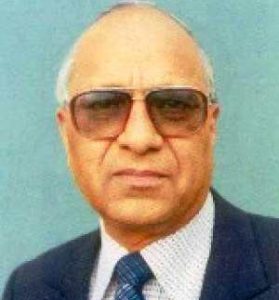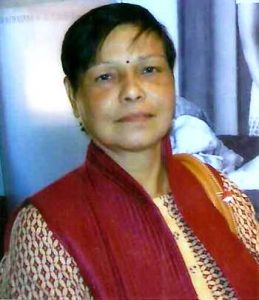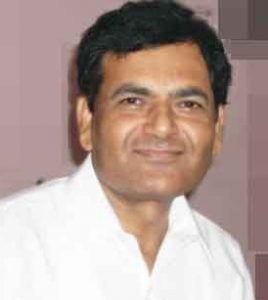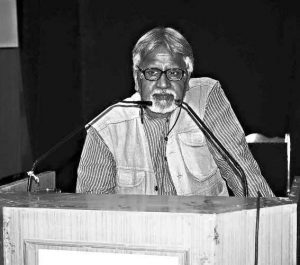It has been an old complaint of Dalit-Bahujans that their voice is not heard by the Indian judicial system and they do not get justice. It is said that 90 per cent of the inmates of the jails in the country come from the Dalit-Bahujan background. They are in a majority among those executed as well. Are the members of these communities more prone to committing crimes? No, not all. The real reason is that the courts convict those accused who are not able to present credible evidence and effective arguments in their defence. And it is here that the Dalit-Bahujans suffer, because they do not have adequate representation in the judiciary. The Dalit-Bahujans believe they will be able to get justice only when their communities have a significant presence in the judicial system. Amrendra Yadav and Ashok Chaudhary of FORWARD Press talked to specialists on this issue.

Subhash Kashyap,
constitutional expert
The main problem is that the Dalits continue to be Dalits. The politicians want them to remain Dalits and they themselves also want to remain so. Those dominating the politics of Dalits and OBCs want to do nothing substantial for them.

Kamlesh Jain,
senior advocate, Supreme Court
The judgments, right from the lower courts to the Supreme Court, are based on the complaints made by the aggrieved party. The complaints are not registered properly. Legal loopholes are left in the complaints. Then, Dalits do not have good lawyers. The opposite parties hire competent lawyers. Moreover, the laws are interpreted wrongly by courts. There are many judgments which are condemnable. I would like to say that there is bias against the Dalits too – right from the lower courts to the Supreme Court – and that bias is reflected in the judgments. That is why they are unable to get justice.

Lalji Prasad Nirmal,
president, Ambedkar Mahasabha
If the voice of the Dalit-Bahujans is not heard in the Indian judiciary, their almost nil presence in the Bar and the Bench is one factor. But the social structure of our country is also no less responsible. The Dalits feel insecure because they have neither the support of the Bar nor of the Bench. The judges, who secure their positions without facing any real competition, are unable to shake off their retrograde social values. The Bench that ordered reservations in the appointment of permanent lawyers in Uttar Pradesh comprised one SC and one OBC judge. The first case against reservations in promotions in Uttar Pradesh was pleaded by Markandey Katju – now retired justice of the Supreme Court and chairman, Press Council of India – when he was still a lawyer, in the Seventies. Last year, not a single Dalit-Bahujan lawyer appeared in the case against reservations in promotions heard by High Court and Supreme Court. In UP, a Dalit was in power but not a single advocate-on-record in the Supreme Court was from the Dalit-Bahujan communities. There is a need for diversity in the judicial set-up of the country.
In a country where governments install statues of Manu on the court premises, there can be no justice unless Bahujans become part of the system.

HL Dusadh,
founder, Diversity Mission
It is a bitter truth that the pleas of Dalits, Tribals, OBCs and minorities are just not heard by the judiciary. This is something no one can deny. That is the reason there is a high degree of discontent in these communities vis-à-vis the judiciary. In my view, the main reason for Dalit-bahujans not getting justice is the mindset of India’s casteist society. The world’s only caste-based society is the repository of many evils but the foremost among them is that there is no feeling of brotherhood in the Hindu society divided into innumerable castes. There is instead enmity and hostility. An even bigger problem is that a person born and brought up in this system cannot think beyond the interests of his caste/community. Getting out of the confines of one’s caste is a massive task. The Hindus do not identify with their religion, they identify with their caste. This lack of wider social concern among the Hindus is so deep-rooted that even great sadhus and sants, king and emperors, social reformers, writers and artistes have not been able to free themselves from this malaise. How, then, can we hope that the judges will rise above the narrow considerations of caste?
The Bahujans are cursed to suffer at the hands of the judges lacking a wider social identity because in independent India the judiciary is yet to be democratized. It is dominated by a conservative, privileged class which firmly holds on to the traditional Hindu world view and does not consider the Dalit-Bahujans even humans. Since it is next to impossible to inculcate liberal values in the Hindus as a whole, the only way to ensure justice for Dalit-Bahujans is to have the lower courts to the Supreme Court and the posts of readers to judges reflect the social and gender diversity of India. Every class and men and women should get representation in these bodies in proportion to their share in the population. Thus a balance will come about and despite the lack of a liberal and enlightened mindset, miscarriage of justice will become rare.
Published in the February 2014 issue of the Forward Press magazine
Forward Press also publishes books on Bahujan issues. Forward Press Books sheds light on the widespread problems as well as the finer aspects of the Bahujan (Dalit, OBC, Adivasi, Nomadic, Pasmanda) community’s literature, culture, society and culture. Contact us for a list of FP Books’ titles and to order. Mobile: +919968527911, Email: info@forwardmagazine.in)




